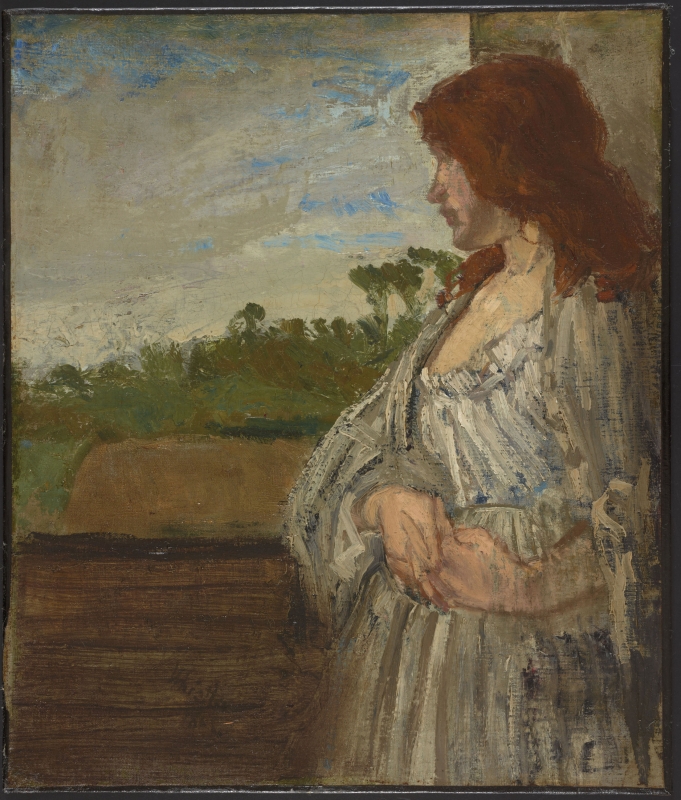Technique
The canvas is of fairly fine weave. The head was at one time higher up and further to the left. Parts of the sky and her left arm have been scraped down. There are areas of very dark, almost black, paint under the skirt and shawl, and a black line outlines her breast at left. Head and hair are painted thickly, and the dress is even more thickly impasted. The grey of the sky outlines her profile clearly. The curves of her hair, in shades of brown enriched with touches of red, extend partly over and partly under surrounding areas.
Although much of the figure was painted with a round-ended brush, some areas of shadow on her face were rubbed in to create softer shadows. By contrast, patches of bare canvas suggest her eyes and surround the brushstrokes on her face, the folds of the low-necked chemise, the skirt, and the shawl.
The undergrowth in the background, and the clouds, have been laid on with a palette knife; the square end of a bristle brush jabbed trees along the horizon. Only the wall below the window and the embankment below the train are painted thinly, the engine consisting of a summary stroke of green, and the funnel, a mere touch of reddish brown. It is possible that the train originally extended further to right. 1
Conservation History
Unknown.
Frame
Flat Whistler frame, American-made, 1920s. 2
Notes:
1: MacDonald, Margaret F., Joanna Dunn, and Joyce H. Townsend, 'Painting Joanna Hiffernan', in Margaret F. MacDonald (ed.), The Woman in White: Joanna Hiffernan and James McNeill Whistler, New Haven and Washington, 2020, pp. 33-45. at p. 38.
2: Dr Sarah L. Parkerson Day, Report on frames, 2017.
Last updated: 31st January 2022 by Margaret






